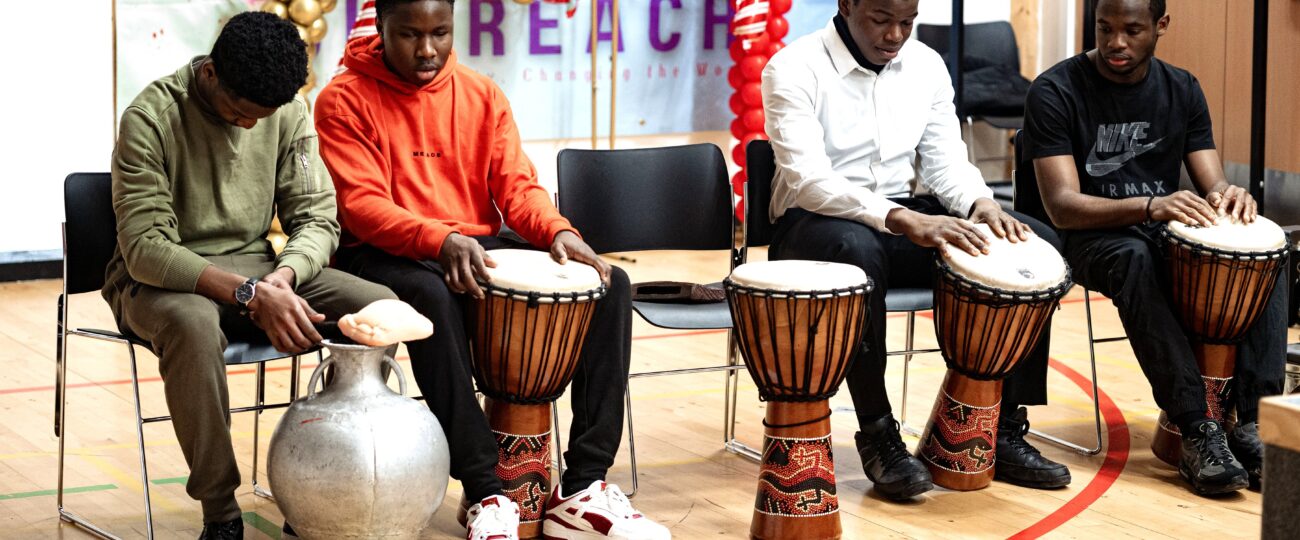Music is more than just a sound in Africa—it’s a lifeline, a language, and a force that shapes identity, thought, and movement. Across the continent, music has long played an important role in rituals, resistance, celebration, and healing. But in today’s digital age, it has taken on an even more powerful influence—especially among African youth.
From Afrobeats pumping through Lagos streets to Gengetone setting the tone in Nairobi, music is not just entertainment. It’s a voice for the voiceless, a tool for social change, and a mirror reflecting the hopes, challenges, and dreams of a new generation. This article explores how music impacts African youth, transforming lives in ways that are cultural, social, political, and even economic.
Music as a Cultural Identity
Bridging the Traditional and Modern
One of the most fascinating aspects of African music today is how it blends the old and the new. Young African musicians are combining traditional instruments and rhythms with contemporary styles like hip-hop, trap, EDM, and reggae to create something authentically their own.
For example:
- Burna Boy fuses Yoruba proverbs and Afrobeat rhythms with global hip-hop sounds.
- Sauti Sol combines Swahili harmonies and Kenyan soul with modern funk and pop.
- Sho Madjozi incorporates Tsonga culture into vibrant music that speaks to young people worldwide.
This blend allows young Africans to stay rooted in their heritage while also expressing their individuality in a modern context.
Language as Empowerment
Music in native languages—from Zulu to Igbo to Wolof to Hausa—has become a bold assertion of pride and identity. It helps young Africans reconnect with their roots, reinforcing the idea that local languages have global value. Artists like Nasty C, Flavour, and Yemi Alade have helped normalize singing and rapping in African languages, creating a cultural shift that encourages youth to embrace their mother tongues.
Music as a Tool for Social and Political Expression
A Soundtrack of Resistance
Music has always been political in Africa. From Fela Kuti’s revolutionary Afrobeat to Lucky Dube’s protest reggae, music has been used to challenge injustice. Today’s youth are picking up that baton with fierce energy.
Modern artists are using their platforms to speak on:
- Corruption and governance (e.g., Falz’s “This is Nigeria”)
- Police brutality (e.g., the #EndSARS movement)
- Gender rights and feminism (e.g., Sho Madjozi and Tems)
- Youth unemployment and inequality
Music gives young people a way to voice frustrations in countries where free expression is often limited. It helps spark dialogue, raise awareness, and even inspire movements.
Creating Social Awareness
Beyond protests, music also addresses societal issues like mental health, HIV awareness, drug abuse, and gender-based violence. Organizations now partner with musicians to run awareness campaigns targeting young people—because music connects where speeches can’t.
The Role of Technology and Social Media
Music in the Age of Streaming
Thanks to platforms like Spotify, Boomplay, YouTube, and Audiomack, African youth now have global access to music—and a global audience for their own sounds. This has democratized music production and allowed underground artists to gain popularity without major record deals.
Young African artists can now:
- Upload a song and go viral within hours
- Collaborate with international stars via Instagram or TikTok
- Build fanbases without leaving their hometowns
It’s a powerful shift that gives youth more creative freedom and financial independence than ever before.
TikTok and Music Challenges
TikTok has revolutionized how young Africans discover and engage with music. Songs like CKay’s “Love Nwantiti” exploded thanks to dance challenges and memes. Young users not only share music—they actively shape trends, redefine cool, and influence what gets played on the radio or in clubs.
Music as an Economic Opportunity
Creating Jobs and Livelihoods
Music is becoming a major source of income for young Africans—not just for artists, but also for producers, video directors, dancers, social media managers, stylists, and sound engineers. The creative economy is one of the few sectors where youth can carve out a path based on talent, not just degrees or connections.
With the right tools and exposure, music can:
- Lift youth out of poverty
- Reduce crime by offering creative alternatives
- Encourage entrepreneurship and innovation
This is especially important in regions with high unemployment and limited formal job opportunities.
Inspiring Entrepreneurship
Young people are starting independent record labels, online radio stations, music blogs, and YouTube channels. They’re monetizing their passions and learning valuable skills in marketing, branding, and business management.
Gender and Representation in Music
Breaking Gender Barriers
While the music industry has often been male-dominated, more African women are rising and rewriting the rules. Artists like:
- Tiwa Savage
- Sho Madjozi
- Tems
- Muthoni Drummer Queen
…are using music to challenge gender norms, empower girls, and demand representation. Their success inspires other young women to take up space in music, both in front of the mic and behind the scenes.
Feminist Voices
Through music, African female artists are tackling subjects like body positivity, self-worth, independence, and gender-based violence. Their songs become anthems for young women navigating complex social expectations in a changing world.
Challenges Facing Young Musicians
While music is a powerful force for good, young African musicians still face hurdles:
- Lack of funding and infrastructure (few studios, poor internet)
- Piracy and copyright issues
- Limited access to formal music education
- Societal pressure to pursue “safer” careers
Despite these challenges, youth continue to innovate—creating music with smartphones, distributing via social media, and learning from YouTube tutorials. Their resilience fuels the continent’s vibrant music scene.
Music and Mental Health
A Coping Mechanism
Music provides a healthy outlet for stress, anxiety, and trauma—especially in communities affected by conflict, poverty, or social unrest. Many young people report that music helps them process emotions, feel understood, and stay motivated.
Music Therapy and Healing
Programs in schools, prisons, and refugee camps now use music therapy to help youth deal with mental health challenges. It’s a powerful tool that transcends language and offers comfort, connection, and hope.
For African youth, music is not just background noise—it’s a soundtrack to life. It shapes identity, drives social change, offers economic opportunities, and builds bridges across languages, cultures, and borders. Whether it’s a beat from the streets of Kinshasa or a freestyle on a phone in Accra, music is transforming the youth—and in doing so, transforming the continent.
As the world tunes in to Africa’s sound, it’s crucial that we support and invest in the young people behind the music. They’re not just entertaining us—they’re leading the next cultural revolution.
Stay tuned to Afriker.com as we continue to explore the powerful intersection of African youth, culture, and creativity.

